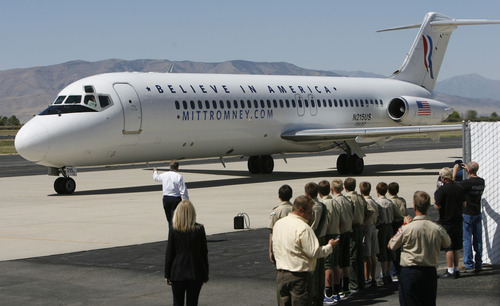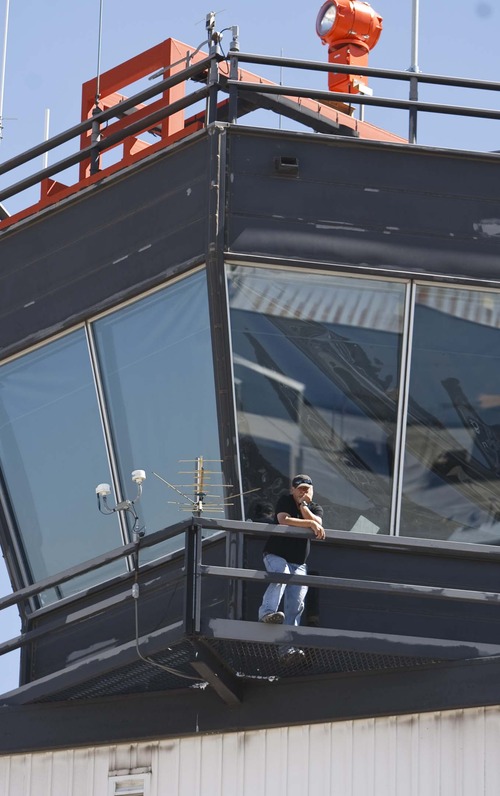This is an archived article that was published on sltrib.com in 2013, and information in the article may be outdated. It is provided only for personal research purposes and may not be reprinted.
The airports in Provo and Ogden are scheduled to close their air control towers because of the sequestration, and the prospect is raising issues about safety, managers of both airports say.
"We have a large flight school and a very busy airport. It can cause some safety concerns," said Steve Gleason airport manager for the Provo Airport.
Farther north, his counterpart says the Ogden-Hinckley Airport would have to be especially careful monitoring aircraft because of cross traffic over the city from Hill Air Force Base and flights that come and go from the Salt Lake City International Airport.
"Safety, it's always about safety," said Royal Eccles.
If and when the control towers close, both airports will have to rely on an older communications system called UNICOM, in which pilots will communicate with one another over the same frequency.
UNICOM "works at airports that are not used very frequently, but at busier airports it can be a problem," Gleason said. Having a control tower with air traffic controllers monitoring traffic is like "putting in a street light at a busy intersection," he said.
The Federal Aviation Administration recently issued a list of 173 small- and medium-size airports that will face control tower closures because of forced spending cuts. Airports in Ogden and Provo are the only two in Utah on the list.
The closures are set to begin April 7, and the airports have until Wednesday to deliver arguments to the FAA about why the towers should remain open.
As a result of the sequestration, the FAA is facing a 4 percent cut that amounts to $600 million. Of that, the control towers at smaller airports — called contract towers — face a 75 percent funding reduction, Spenser Dickerson, head of the Contract Tower Association, recently told CNN.
If that happens, Ogden-Hinckley faces the prospect of laying off all five of its air traffic controllers, Eccles said. Gleason would not say how many controllers at his airport would be affected.
The controllers at all the airports threatened with tower closures are not FAA employees. Instead, they are employed by service company Serco. Gleason was not sure whether any of the contract controllers would be transferred to other airports.
Should the towers close, neither Utah airport would see an immediate reduction in flights, and relatively new service from Provo and Ogden to Phoenix through Allegiant Air would not be affected, according to both airport managers.
"It's too soon to tell," Allegiant spokeswoman Jessica Wheeler said about whether they will alter their flight service to Phoenix from Ogden and Provo.
"We're doing risk assessments on each of those [airports]," she said. "We're working with the airports on a one-by-one basis and we have to wait and see. We'll do what we can to put the best interests of our passengers first and mitigate any disruption in our service."
In the meantime, officials at both airports are hoping that Congress can come to a resolution to prevent the spending cuts from happening.
"I have confidence in our government, and common sense will prevail," Gleason said.





